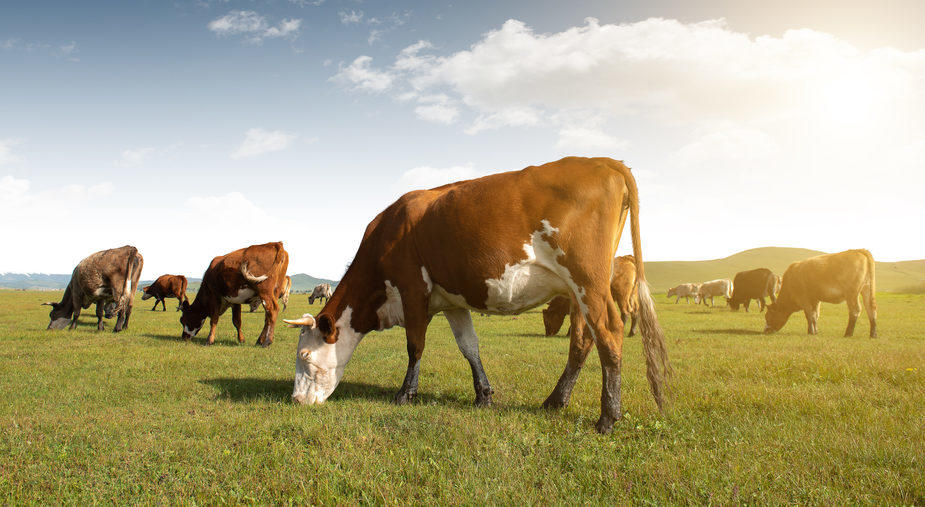
Caption
The Georgia Legislature is discussing drafting a bill for consideration during the session starting in January that would allow people to drink raw milk.
Credit: TCPX/Shutterstock
|Updated: September 28, 2021 11:11 AM

The Georgia Legislature is discussing drafting a bill for consideration during the session starting in January that would allow people to drink raw milk.
Family dairy farms in Georgia are fighting to survive, and some farmers say selling raw milk could be the answer, despite public health concerns.
White House Dairy Farm owner Marvin Yoder said that because of the oversaturation of the milk market, prices have been driven down extraordinarily low over the past seven years. While some big dairies are expanding, family-owned farms like Yoder’s are struggling to make ends meet. Being able to sell raw milk would triple his income, Yoder said.
“If nothing is done, I don’t think you will have more than 40 dairies (in Georgia) in 10 years,” said Yoder. “The smaller farms are the backbone that keeps a tight-knit community together.”
Currently, raw milk can only be sold for pet consumption in Georgia, and only goat farmers are currently licensed to sell it, not farms that produce cows’ milk for people to drink.
Regulations vary widely on raw milk sales. Only New Jersey prohibits all sales. Seventeen states allow direct sales from farms to consumers and 10 states, including South Carolina, allow retail sales for human consumption. Only three other states limit sales to pet food.
The Georgia Legislature is discussing drafting a bill for consideration during the session starting in January that would allow people to drink raw milk. The Georgia House Agriculture and Consumer Affairs Committee has established a Raw Milk Study Subcommittee to look into the issue, as a response to the pleas of some Georgia dairy farmers like Yoder who met with the subcommittee this summer and told them that raw milk sales could help them stay operational.
But there are farmers like Ura Crowe, a goat milk farmer at the Utopia Hill Farm in Clarkesville, Georgia, who worry about bad publicity if consumers get sick from drinking raw milk. Raw milk is not pasteurized, which is a process where the liquid is heated to 145 degrees Fahrenheit to kill bacteria. Safety is a huge concern because of the slew of diseases that can come from contaminated raw milk, including salmonella, e-coli and listeria.
“I just don’t want anyone to get sick,” Crowe said. “If a lot of people start selling (raw milk) for human consumption, and they don’t take good care of it, it could hurt me.”
Subcommittee member Rep. Beth Camp, a Republican who lives on a farm in Camilla, said introducing government-approved guidelines could ensure the safety of raw milk, even if it is unpasteurized, and increase farmers’ profit margins.
She said Georgia dairy farmers who pasteurize and follow all legal milk preparation procedures make about $1.05 in profit per gallon once their milk is sold in a grocery store. She said raw milk can be bottled immediately after milking, and sold as a “premium product” at farmers’ markets and health food stores for a profit of up to $4 a gallon.
“I am in favor of doing what is going to help our dairy farmers stay viable,” Camp said. “I feel it is important to hear both sides of the argument.”
State Rep. Rebecca Mitchell, a physician and a Democrat from Snellville who also is a member of the subcommittee, said she is concerned about the liability of any businesses that sell raw milk, for pets or humans, because legal action could be devastating if someone got sick.
“If you want farms to succeed, you think about the liability of specific actions,” Mitchell said. She said selling raw milk is “a very big risk to lose your whole farm.”
Mitchell shares this opinion with the National Milk Producers Federation, a lobbying group for dairy farmers.
Miquela Hanselman, the organization’s manager for regulatory affairs, said it “opposes any attempt to legalize the sales of raw milk, because of how large of a public health and safety concern it is.”
“It is a huge liability for dairy farmers,” she added.
This story comes to GPB through a reporting partnership with Fresh Take Georgia.